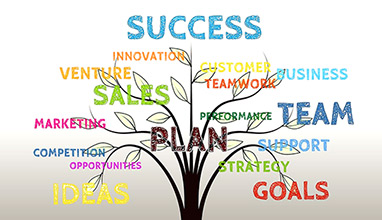How Social Distance Event Planning Specialists Are Transforming Commercial Events
In the wake of the global pandemic, the event planning industry underwent a significant transformation. Large-scale commercial events that once drew massive crowds were put on hold, and event organizers faced the challenge of adapting to the new normal. This is where social distance event planning specialists came into play. This article will explore how these specialists have transformed commercial events by navigating the complexities of social distancing regulations and creating innovative solutions to keep events both safe and engaging.

Photo: pexels.com
1. Adapting to the New Normal
The onset of the pandemic forced event planners to rethink their strategies and priorities. Traditional event planning practices were no longer feasible due to health and safety concerns. Social distance event planning specialists quickly recognized the need for a different approach. They became experts in understanding and implementing the evolving guidelines and regulations imposed by health authorities.
2. Reimagining Venue Layouts
One of the first challenges that these specialists faced was reimagining venue layouts to accommodate social distancing requirements. They took into account factors such as space between seating arrangements, one-way traffic flow, and the placement of hand sanitizing stations. By meticulously planning and redesigning event spaces, they ensured that attendees could maintain a safe distance from one another without compromising the overall experience.
3. Utilizing Technology to Connect Virtually
In an era of social distancing, the role of technology has become more critical than ever. Social distance event planning specialists leveraged virtual platforms to create interactive and engaging experiences. Webinars, live streaming, and virtual networking sessions became common features of commercial events. Attendees could participate from the safety of their homes while still feeling connected to the event and its objectives.
4. Innovative Seating Arrangements
Traditional seating arrangements had to be rethought to comply with social distancing guidelines. Event planning specialists devised creative solutions such as staggered seating, spaced-out chairs, and transparent partitions between tables. These innovations adhered to safety protocols and added a unique aesthetic appeal to the events.
5. Enhanced Sanitization and Hygiene Protocols
Maintaining a high standard of hygiene became a top priority for social distance event planning specialists. They implemented rigorous sanitization protocols, including frequent cleaning of high-touch surfaces, hand sanitizers at multiple points throughout the venue, and ensuring that restroom facilities were consistently sanitized. These measures not only contributed to the safety of attendees but also instilled confidence in event-goers.
6. Streamlined Registration and Check-In Processes
Event planners streamlined the registration and check-in processes to minimize physical contact and congestion. Mobile apps and QR codes became instrumental tools for attendees to access event information and gain entry. This reduced waiting times and eliminated the need for paper tickets and physical interaction with event staff.
7. Hybrid Events: A Blend of Physical and Virtual
Recognizing that the future of events would likely involve a hybrid model, social distance event planning specialists paved the way for integrating physical and virtual components. This approach allowed for greater flexibility and accessibility, enabling a wider audience to participate. Hybrid events became a powerful tool for reaching global audiences while adhering to social distancing guidelines.
8. Emphasis on Health Screenings
Pre-event health screenings have become a common practice in the event planning industry. Attendees were required to undergo temperature checks and answer health questionnaires before gaining entry to the event. Event specialists ensured these screenings were conducted efficiently to prevent long queues and delays.
9. Flexible Cancellation and Refund Policies
Understanding the uncertainty of the times, social distance event planning specialists introduced flexible cancellation and refund policies. This gave attendees peace of mind, knowing they could change their plans without incurring financial losses. These policies also helped event organizers manage fluctuations in attendance more effectively.
10. Partnering with Healthcare Professionals
Event planners forged partnerships with healthcare professionals and local health departments to stay up-to-date with the latest health and safety guidelines. These collaborations allowed event specialists to receive real-time information and expert advice, ensuring that events were conducted in accordance with the latest recommendations. These strategic partnerships ensured the safety of event attendees and demonstrated the commitment of social distance event planning specialists to prioritize health and well-being in the planning and execution of commercial events.
The role of social distance event planning specialists has been crucial in transforming commercial events to adapt to the challenges of the pandemic. Through their expertise in navigating health and safety regulations, creative innovations, and the integration of technology, they have paved the way for a new era of event planning. Moving forward, it is clear that their contributions will continue to shape the industry, ensuring that events are safe, engaging, and accessible to a global audience.
Hits: 1140 | Leave a comment
Tags:event planning

















